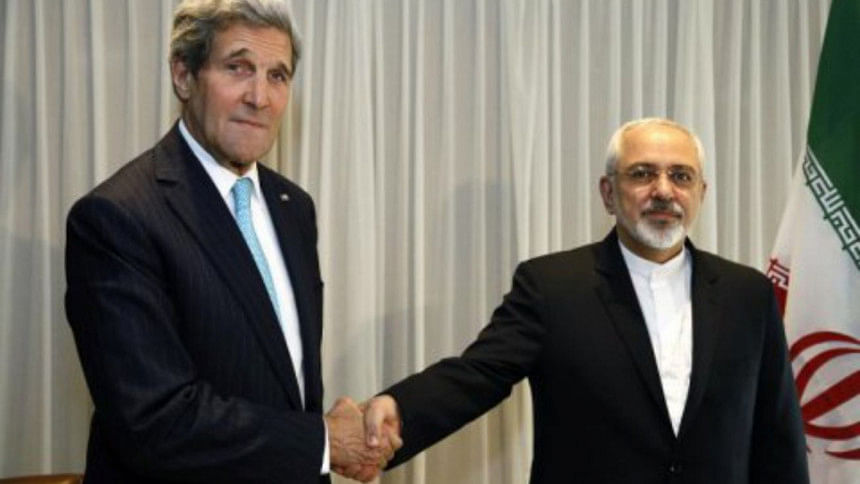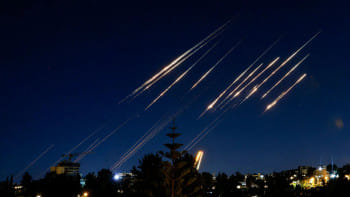The Future of the Iran Nuclear Deal

THERE'S many a slip twixt the cup and the lip," goes the old English proverb. Something seemingly resolved and certain in fact is neither. If no such expression exists in Farsi, I predict one soon will.
The reason, of course, is the "Parameters for a Joint Comprehensive Plan of Action Regarding the Islamic Republic of Iran's Nuclear Program," the framework just adopted by Iran and the P5+1 (the UN Security Council's five permanent members – China, Britain, France, Russia, and the United States – plus Germany). The agreement constitutes an important political and diplomatic milestone, and it contains more detail and is broader in scope than many anticipated.
But, for all that, the text leaves unanswered at least as many questions as it resolves. In reality – and as the coming weeks, months, and years will demonstrate – major issues have yet to be settled. It is closer to the truth to say the real debate about the Iran nuclear accord is just beginning.
The framework places significant limits on Iran's nuclear program, including the number and type of centrifuges, the sort of reactors, and the amount and quality of enriched uranium that the country may possess. Standards are set for the inspections needed to provide confidence that Iran is fulfilling its obligations. And provision is made for easing economic sanctions once Iran has verifiably met its commitments.
The bottom line is that the agreement will provide an estimated one-year warning from the moment that Iran might decide to build one or more nuclear weapons to the point at which it could achieve that goal. This assessment assumes that the monitoring called for in the accord will detect any Iranian non-compliance early enough to enable a coordinated international response, particularly the reintroduction of sanctions, before Iran could acquire nuclear weapons.
There are no less than five reasons not to assume the deal will enter into force or have the desired impact. The first involves the next 90 days. What was announced was an interim framework; a formal, comprehensive accord is supposed to be completed by the end of June. In the meantime, there could easily be changes of heart and mind as those who negotiated the interim deal return home and face criticism from their governments and publics over its terms. Already, significant differences are emerging in how the US and Iranian sides are representing what was negotiated.
A second concern stems from the specific issues that remain to be resolved. The most difficult might be the timing of when various economic sanctions are to be removed – the issue of greatest concern to Iran. But these same sanctions are also the source of the greatest leverage over Iranian behaviour, which means that many in the US and Europe will want them to remain in place until Iran has fully met its critical obligations.
A third source of doubt is whether the various parties will approve any long-term pact. The two main uncertainties involve Iran and the US. So-called hardliners in Iran will undoubtedly object to an agreement with the "Great Satan" that places limits on their country's nuclear ambitions. But there is also a widespread desire among Iranians to get out from under economic sanctions, and Iran will approve a pact if Supreme Leader Ayatollah Ali Khamenei favours it, which he presumably does.
The uncertainties are greater in the US. President Barack Obama must contend with a far more complex political environment, beginning with the US Congress. There is widespread and understandable concern about leaving Iran with any nuclear capabilities, about the adequacy of provisions for monitoring and inspection, and about what will happen in ten or 15 or 25 years when various limits on Iran expire. Persuading Congress to approve the final pact and/or lift sanctions is anything but assured.
This question of gaining political approval is closely tied to a fourth area of concern: how any final agreement is implemented. The history of arms control suggests there will be occasions when Iran, which has a record of withholding relevant information from UN weapons inspectors, is suspected of not living up to the letter, much less the spirit, of what was negotiated. Agreement is needed on the process for judging Iranian behaviour and for determining appropriate responses.
The fifth concern stems not so much from the accord as from everything else about Iran's foreign and defence policies. The agreement is only about Iran's nuclear activities. It says nothing about Iran's missile programmes or support for terrorists and proxies, much less about what it is doing in Syria or Iraq or Yemen or anywhere else in the turbulent Middle East, or about human rights at home.
Iran is a would-be imperial power that seeks regional primacy. Even a nuclear agreement that is signed and implemented will not affect this reality and might even make it worse, as Iran could well emerge with its reputation enhanced and a long-term option to build nuclear weapons intact.
Obama is right: A nuclear agreement of the sort outlined is preferable to Iran possessing nuclear weapons or going to war to prevent that outcome. But any agreement must also generate widespread confidence in the US and the region that it will place a meaningful ceiling on Iran's nuclear program, and that any cheating will be discovered early and dealt with firmly. This will not be easy; indeed, it is no exaggeration to predict that the effort to generate such confidence may well prove as demanding as the negotiations themselves.
The writer is the President of the Council on Foreign Relations and previously served as Director of Policy Planning for the US State Department (2001-2003).
Copyright: Project Syndicate, 2014. www.project-syndicate.org
(Exclusive to The Daily Star)

 For all latest news, follow The Daily Star's Google News channel.
For all latest news, follow The Daily Star's Google News channel. 



Comments